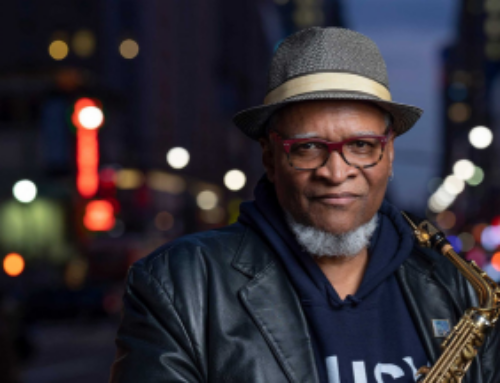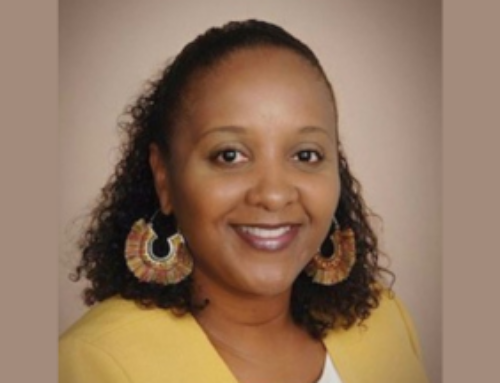Senior Toni-Ann Nelson shares her virtual experience as a Massachusetts Institute of Technology (MIT) Gould Fellow recipient this summer
A senior at Alcorn State University was one of six students from across the country to be selected for a research internship at one of the world’s most prestigious schools.
Toni-Ann Nelson, a Portland, Jamaica native majoring in molecular biology, was selected as a Gould Fellow for the Massachusetts Institute of Technology (MIT) virtual Summer Research Program in Biology (MSRP-Bio) this summer.
MIT is one of the nation’s top engineering schools and is one of the most selective schools in the world. The school’s mission is to advance knowledge and educate students in science, technology, and other scholarship areas that will best serve the nation and the world in the 21st century.
The Bernard S. and Sophie G. Gould Fund was established in 2016 to support MRSP-Bio participants. MRSP-Bio was established in 2003 to provide an intensive research experience for undergraduate students from institutions with limited research opportunities. The program’s goal is to increase the number of underrepresented minority students, first-generation college students, and students from economically disadvantaged backgrounds.
Nelson studied under Dr. Tyler Jacks, director of the David H. Koch Institute for Integrative Cancer Research at MIT. She reflected on her excitement about starting the program and learning from a seasoned cancer researcher.
“I was elated to get hands-on cancer research experience at one of the world's top universities,” said Nelson. “I was shocked when I received my acceptance letter a week after I submitted my application. I could not wait to learn from Dr. Jacks.”
COVID-19 forced the program to move to a virtual format, but the change didn’t stop Nelson from having an enriching experience. She applauds MIT for delivering quality lessons despite the circumstances.
“The program was well designed to give students the best summer experience, even in a pandemic. I didn’t know what to expect when the program became virtual due to COVID-19, but I learned so much more than I ever anticipated.”
An aspiring cancer researcher, Nelson fulfilled her dream by working on a project that focused on lung cancer. She spoke on how the project was important for her development as a researcher.
“Working on this project taught me how to use computational research programs and how to do dimensional reduction of data. My MIT experience was enlightening because it showed that certain scientific tools are key to understanding the disease. I can see myself using these tools on projects in the future. Also, the project showed me the importance of computational tools for data analysis. I am grateful to the program for this opportunity.”
Nelson is no stranger to research. While at Alcorn, Nelson has spent three years as a research assistant in Dr. Yan Meng’s lab at Alcorn’s Biotechnology Center. During her tenure, she researched improving sweet potato viral disease resistance by using genetic modification processes. She also developed an efficient plant regeneration protocol for sweet potato and presented her findings during the Alcorn's annual Center for Research Excellence Symposium, where she won the Best Undergraduate Oral Presenter Award.
Thanks to the knowledge she’s gained from her mentors, Nelson was prepared to thrive in MIT's program. She appreciates her professors for preparing her for the opportunity.
“I would not have gained any research experience in molecular biology had it not been for the Biotechnology Center. My mentors taught me several molecular techniques and showed me how to use various research machinery. I am truly grateful to my mentors for allowing me to get hands-on research experience and apply the knowledge I’ve learned in my biology lab courses.”
Biology piqued Nelson’s interest when she was a teenager. Learning about the human body’s cellular makeup made her want to know more about the subject.
“Biology has been my favorite course since high school. It was fascinating to me that humans started as a single cell and developed into a multicellular organism. I was excited to learn more about genes, DNA replications, and various cellular processes.”
However, tragedy struck Nelson and her family when her grandfather died from lung cancer. Her grandfather’s death inspired her to delve deeper into cancer research to possibly lead the charge on finding a cure in the future.
“I lost my grandfather to lung cancer in 2014. My passion for research started when I was in high school, but my grandfather's death led me to cancer research. I was broken when he died, but my curiosity about this disease led me to seek a better understanding of cancer. I wanted to know the cause of this disease and learn to develop a cure.”
Since then, Nelson has used the passing of her loved one as motivation to help others battling the disease.
“Although it is too late to help my grandfather, I want to help patients battling cancer. His death increased my passion for biology. It inspired me to major in molecular biology to understand the body on a molecular level. I believe that understanding cells and their normal activities will provide me a foundation to learn more about cancer and other diseases. My goal is to do intensive studies on cancer and develop effective methods to detect, treat, and cure this disease.”




